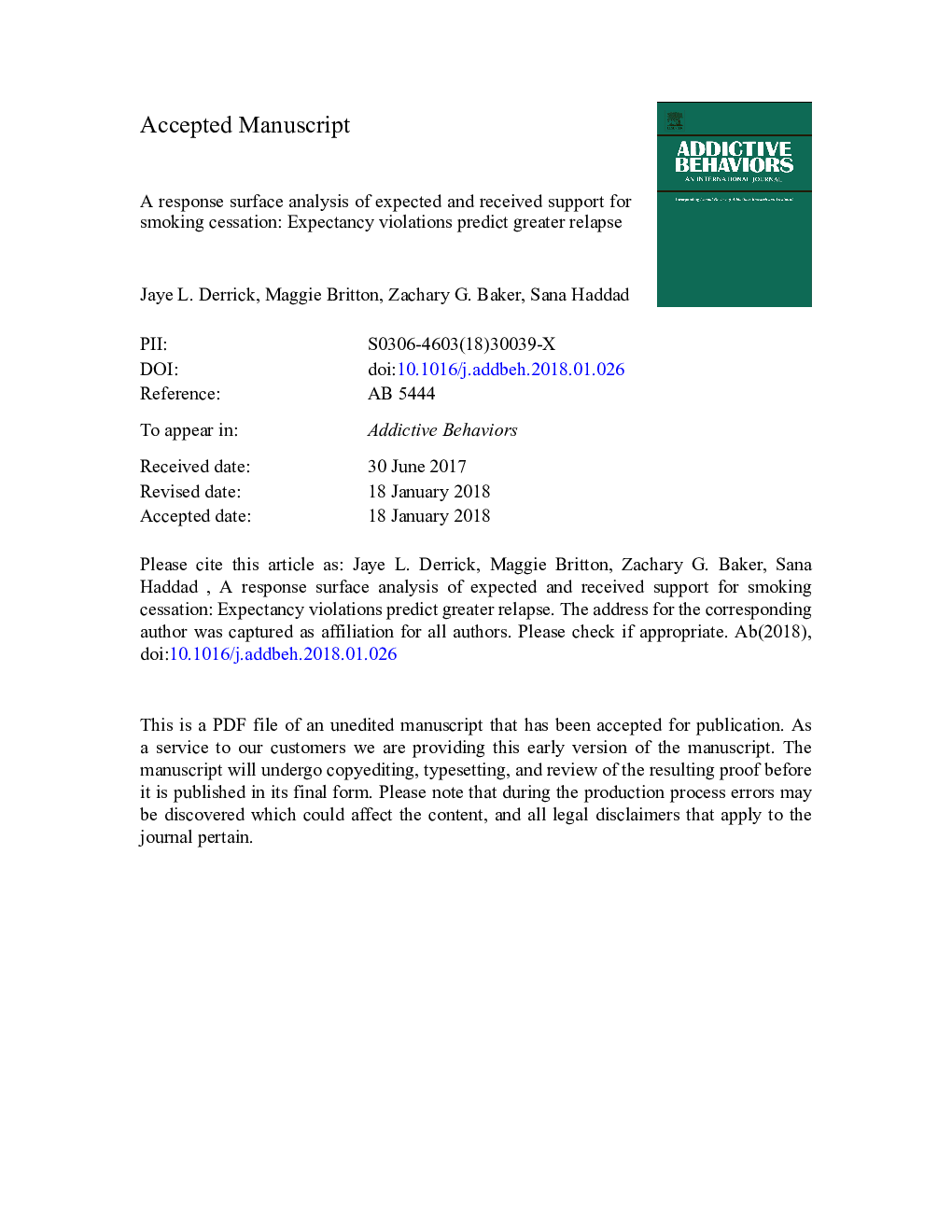| کد مقاله | کد نشریه | سال انتشار | مقاله انگلیسی | نسخه تمام متن |
|---|---|---|---|---|
| 7259132 | 1472488 | 2018 | 30 صفحه PDF | دانلود رایگان |
عنوان انگلیسی مقاله ISI
A response surface analysis of expected and received support for smoking cessation: Expectancy violations predict greater relapse
ترجمه فارسی عنوان
تجزیه و تحلیل سطح پاسخ حمایت مورد انتظار و دریافت شده برای توقف سیگار: تخلفات احتمالی پیش بینی عود بیشتر است
دانلود مقاله + سفارش ترجمه
دانلود مقاله ISI انگلیسی
رایگان برای ایرانیان
کلمات کلیدی
موضوعات مرتبط
علوم زیستی و بیوفناوری
علم عصب شناسی
علوم اعصاب رفتاری
چکیده انگلیسی
People attempting to stop smoking cigarettes (quitters) hold expectations about the extent to which their partner will provide helpful support during a quit attempt. However, these expectations may not align with their perceptions of the helpfulness of the support they receive. We examine expected and received helpful support during a quit attempt. We hypothesized that receiving less helpful support than expected (i.e., creating an expectancy violation) would be associated with the greatest return to smoking. Sixty-two quitters completed a 21-day ecological momentary assessment (EMA) study. They reported expected support at baseline and support receipt and smoking during the EMA phase. At follow-up, they completed an expelled breath carbon monoxide test. Analyses using polynomial generalized linear models with response surface analysis indicated that smoking outcomes depended on the joint influence of expected and received helpful support. As hypothesized, when quitters expected more helpful support than they received, they were more likely to smoke in the first 24Â h and the last seven days of the EMA, and they provided higher carbon monoxide readings at follow-up. These results are consistent with an expectancy violation explanation: quitters are more likely to smoke when they perceive their partner has failed to provide support that is as helpful as expected. Given the importance of support for smoking cessation, many researchers have attempted to experimentally increase provision of support. The current findings suggest that partner support interventions might backfire if the quitter is led to expect more helpful support than the partner is able to provide.
ناشر
Database: Elsevier - ScienceDirect (ساینس دایرکت)
Journal: Addictive Behaviors - Volume 83, August 2018, Pages 160-166
Journal: Addictive Behaviors - Volume 83, August 2018, Pages 160-166
نویسندگان
Jaye L. Derrick, Maggie Britton, Zachary G. Baker, Sana Haddad,
